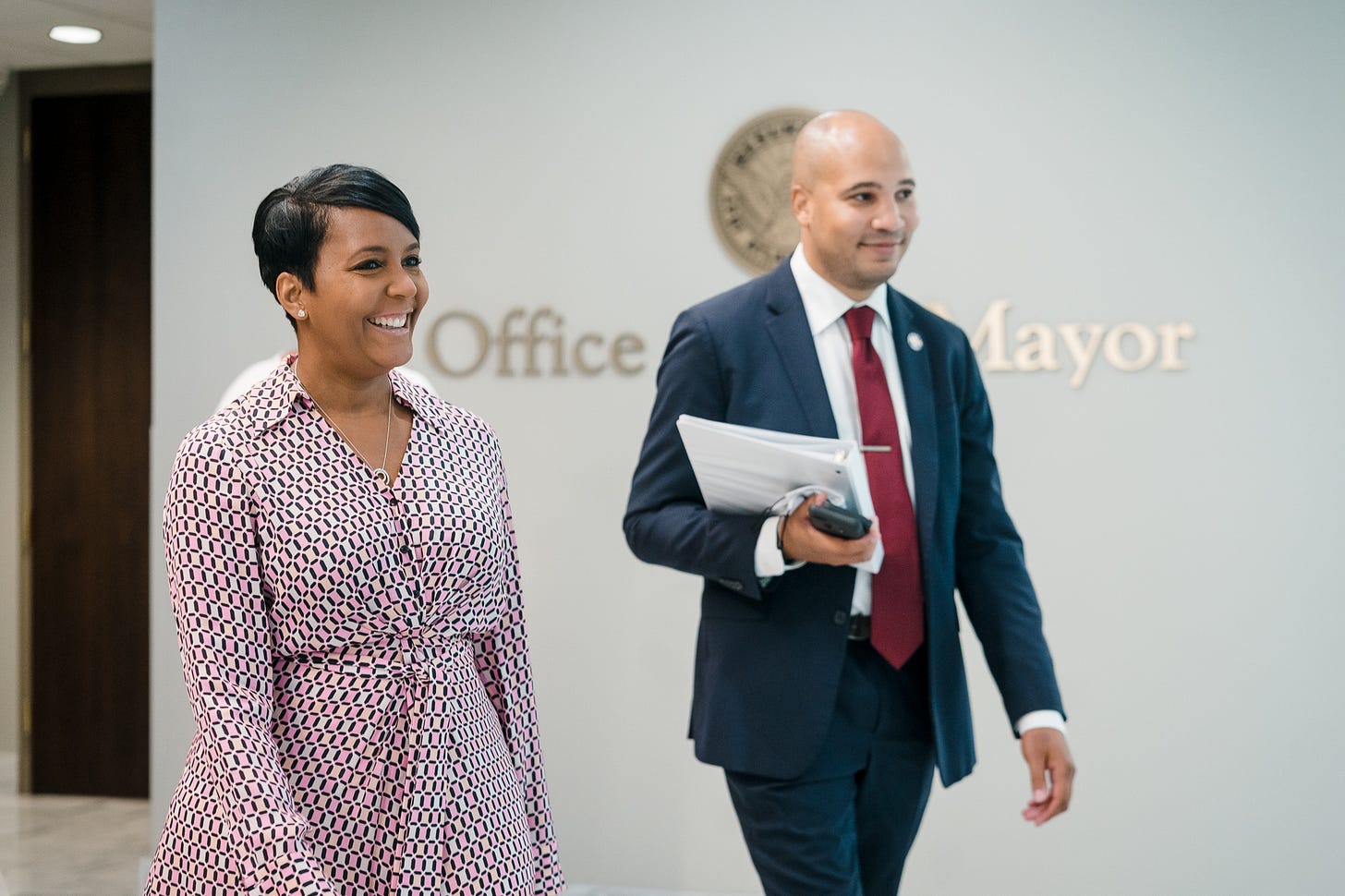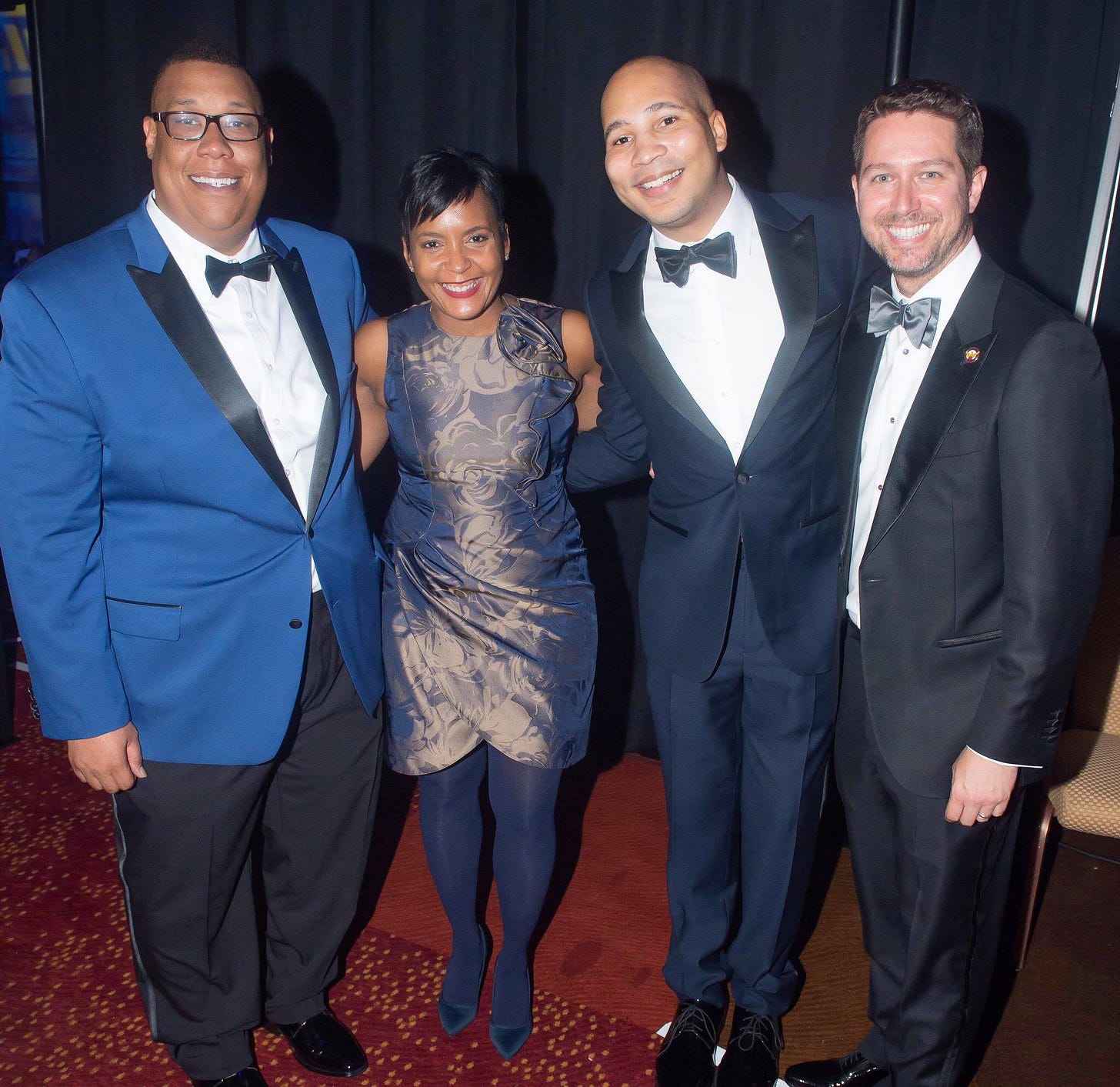What I Did With It Part Three: Wonder
A four-part reflection series told in personal, serialized essays.
I was twenty-seven years old when I joined the Bottoms Administration.
It felt surreal. Back in my non-profit days, we’d spend months—sometimes years—just trying to get a meeting with the Mayor. And even then, it was usually with a representative.
Now, I worked for the Mayor. I could call her. Pop into her office. Pitch ideas. Get feedback. I had access. And that meant the people I’d spent my whole career fighting for had access too.
City Hall was the first place I’d ever worked where Black excellence wasn’t the exception—it was the expectation.
There were Black commissioners. Black lawyers. Black policy minds. Black press secretaries. Hell, there were even Black arborists.
For the first time in my professional life, I didn’t feel like I had to code switch. I could just be Malik. Black. Gay. Fully. Unapologetically.
I wasn’t the first LGBTQ+ person at City Hall. Not even close. I wasn’t the first to work on LGBTQ+ issues either. I stood on the shoulders of people who had been moving the needle for decades—sometimes openly, sometimes in the shadows. They helped shape Atlanta into the city too busy to hate—a place where LGBTQ+ people could feel seen, safe, and proud.
But I was the first person to work on LGBTQ+ issues full-time at City Hall.
Mayor Bottoms had a bold, equity-driven agenda, and she wanted LGBTQ+ people to know: they had a seat at the table. They had a voice in this building.
I started as the LGBTQ Affairs Coordinator. In that role, I worked alongside Mayor Bottoms and her Chief Equity Officer and Senior Advisor, Rashad Taylor—an openly gay Black man who would become a mentor and somewhat of a big brother to me.
Together, we created the Mayor’s LGBTQ Advisory Board. I felt like the gay Nick Fury, pulling together a powerhouse team of Atlanta’s best and brightest. Activists. Business leaders. Educators. Parents. Elected officials. Allies.
The Advisory Board wasn’t just a government council—it was a bridge. A way to bring the pulse of the LGBTQ+ community into the heart of City Hall.
They helped us shape an office that didn’t just protect LGBTQ+ rights—it celebrated LGBTQ+ culture. Loudly. Proudly. Publicly.
In those early days, there wasn’t a blueprint for standing up an Office of LGBTQ Affairs in a municipal government. A few cities around the country gave us guidance, but we were the only one in the South. Yes, we shared common ground—but in Atlanta, in the heart of the Bible Belt, our challenges were uniquely ours.
So, we started with what we could impact.
Mayor Bottoms introduced the City’s first intentional budget line item to combat HIV/AIDS and expand PrEP access.
We filled the Mayor’s Office walls with art by LGBTQ+ artists.
We hosted the first-ever Mayor’s Pride Reception, welcoming hundreds of residents and visitors to City Hall during Atlanta Pride—alongside Mayor Bottoms, the late Congressman John Lewis, The Daily Show’s Jaboukie Young-White, and then-HRC President Chad Griffin.
I can’t even describe what it felt like to bring my HRC family into the space I now helped lead. It was full circle.
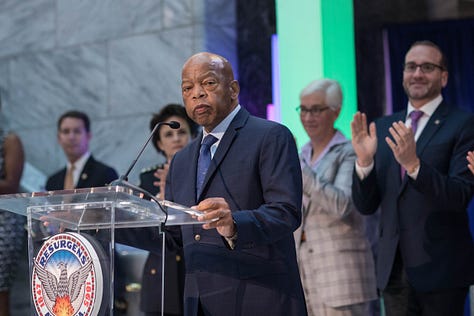
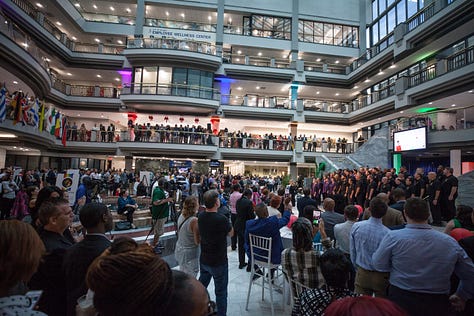
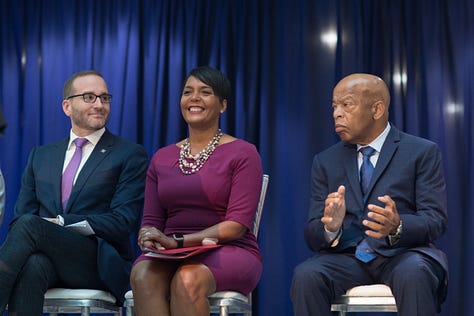
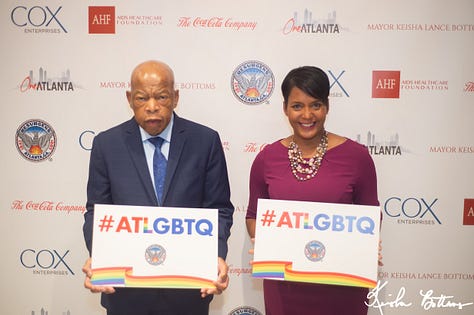
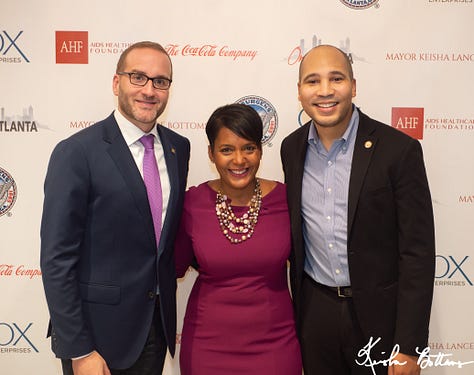
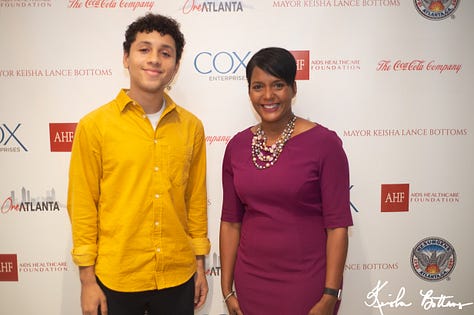
Congressman Lewis, who once served on the Atlanta City Council, gave a speech I will never forget. It may have been the final LGBTQ+ address of his life.
To this day, I’m still mad at myself for not taking a photo with him that night. I was so in work mode that it didn’t even occur to me. I’ve since learned my lesson.
A year later, Mayor Bottoms launched the first-ever Black Pride Reception at City Hall—an event specifically honoring Black Pride Weekend and the unique intersection of Black and LGBTQ+ identities.
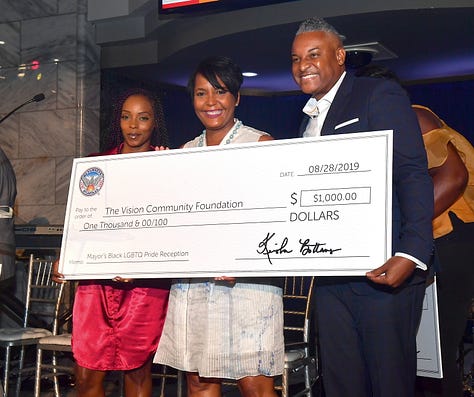
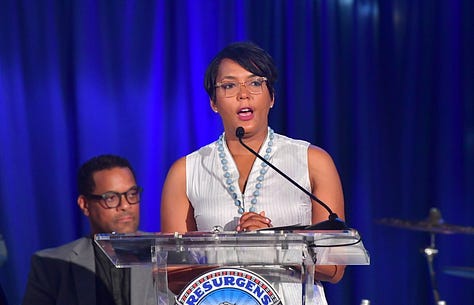
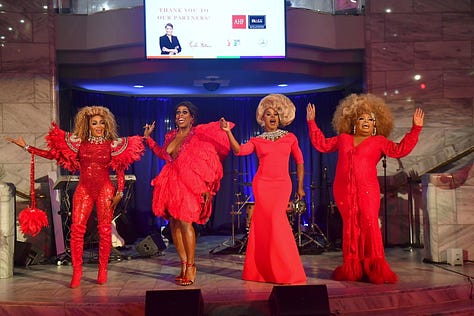
Those days felt golden.
Where others recalled a time when LGBTQ+ people were locked out of City Hall, we were opening the doors—literally. The Atlanta Gay Men’s Chorus used our atrium, filling it with music for their Spring concert. Advocates gathered for policy breakfasts under the rotunda. And when a nearby library canceled a Drag Queen Story Hour, Mayor Bottoms invited her to host it at City Hall—no questions asked.
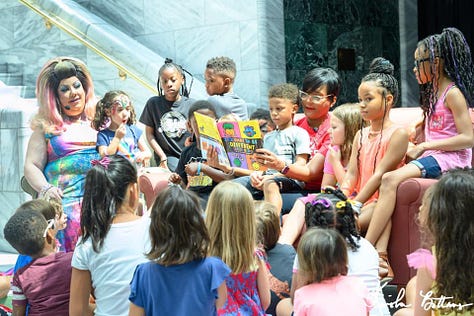

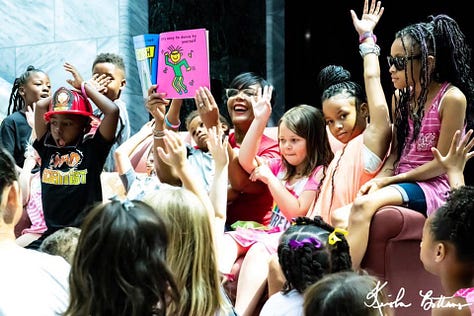
I’ll never forget looking out across that crowd in our atrium: hundreds of children and families just existing—reading books, laughing with the Mayor, flanked by Freddie the Falcon and Harry the Hawk.
Meanwhile, outside of City Hall, I was recruited to join the Out for Biden LGBTQ+ Leadership Council—a national collective of LGBTQ+ advocates advising the Biden campaign on policy and engagement.
Nearly three years into my service, in November 2020, Mayor Bottoms appointed me as the Director of LGBTQ Affairs—my very first official promotion in life.
I’d earned it. I’d proven myself. And it meant more than I could say.
Major outlets like CNN and NBC covered the announcement. At the time, I was truly shocked— it didn’t feel all that newsworthy to me. But, looking back, I understand what it meant. For Atlanta. For the South. For people like me.
With the new title came new responsibilities. More policy. More programming. More building.
One of the initiatives I’m proudest of was the passage of legislation requiring annual LGBTQ+ cultural humility training for all City employees and elected officials. I didn’t just help advocate for it—I helped build it. Working alongside the Mayor’s LGBTQ Advisory Board, we crafted every page of the training to reflect real, lived experiences. The legislation passed unanimously, making Atlanta the first known city in the United States to require it.
We partnered with HRC to co-found Connecting Communities, an annual summit for LGBTQ+ municipal leaders and liaisons across the U.S.—to learn from one another, share best practices, and grow the movement.
We designated the Atlanta Eagle—a venue where RuPaul once performed in his early days, and the site of Atlanta’s infamous “Eagle Raid,” our own modern-day Stonewall—as the first-ever LGBTQ+ historic landmark in the Deep South.
We transformed over 100 restrooms across the city into all-gender restrooms—in City Hall, in our parks, and more than forty in Hartsfield-Jackson Atlanta International Airport. The world’s busiest airport. It might be nerdy, but every time I’m in the airport, I smile a little when I walk past one.
And speaking of the airport—we lit it up.
We programmed the airport’s iconic LED canopies with the rainbow Pride flag for the 50th anniversary of Atlanta Pride. We also lit them in the colors of the trans flag to mark Transgender Day of Remembrance, honoring lives lost to violence and reminding travelers from all over the world that trans people matter here.
Not long after my promotion, I got another call—this time from the Warnock campaign.
If you remember those days, President Biden and Vice President Harris had already been elected, and Georgia had flipped blue for the first time in decades.
But the work wasn’t over. Reverend Raphael Warnock and Jon Ossoff were headed into runoff elections—and the fate of the U.S. Senate depended on them.
I’m embarrassed to admit it now, but the first time the campaign approached me, I declined. (Seriously, I still can’t believe I did that) City Hall was keeping me busy, and I liked the life I was living.
But when they circled back a second time, I said yes—with the blessing of our Ethics Office.
I officially joined the campaign as Special Advisor on LGBTQ+ Engagement, leading statewide efforts to mobilize LGBTQ+ voters, drafting policy proposals, and working with surrogates to amplify our message.
For two months, my days started early and ended late. I didn’t have a social life. I would wake up before dawn to handle campaign work, spend my nine-to-five serving as Atlanta’s Director of LGBTQ Affairs, and then pack that up—only to fire up the campaign laptop for a long night.
It was a grind.
But looking back, it was also one of the most electric times of my life.

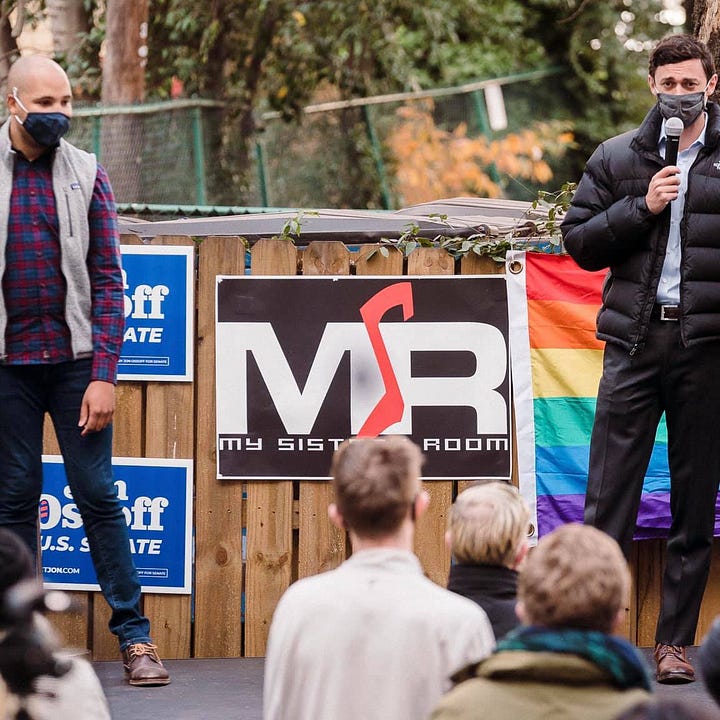
I was traveling across Georgia, stomping for a Senate candidate I believed in—and ended up sharing stages with Jon Ossoff, someone I had first met years earlier in another life on Cathy Woolard’s campaign trail.
Soon, I had the opportunity to showcase my writing in some of the largest outlets in the country, including Cosmopolitan, Out Magazine, and them.
That next Spring, Mayor Bottoms gathered her closest supporters and advisers to deliver the news: she would not be seeking re-election.
To say I was shocked would be an understatement. Her polling was strong, and her campaign account was stronger, so I knew it was a decision rooted in clarity and strength. And if you look at the incredible things she’s done since leaving City Hall—and what she’s bound to do next—you’ll see it was the right decision, for her and for the moment.
Still, it hit hard.
Around the same time, I was quietly falling in love.
And I never expected it to happen at City Hall.
A friend—who I genuinely thought was straight—kissed me at a pool party, and it changed everything. We’d started our journey at Atlanta City Hall on the exact same day. And for years, we were friends. Like actually platonic friends—we grabbed margaritas a couple times a year and listened to music around the fire pit. A few years later, we were in love.
In so many ways, he was my opposite. Not just in race, but in how the world had shaped us. His upbringing gave him everything mine hadn’t. His world taught him that anything he wanted was within his reach. Mine taught me you had to fight for what you wanted—and when you looked down, there wasn’t going to be a safety net to catch you.
I stumbled into politics by accident. He was practically bred for it—the kind of kid who dressed up as President Bill Clinton in third grade and stood outside his classroom shaking hands with his classmates. He wasn’t pretending—he was preparing.
Mayor Bottoms’ final Pride Receptions were beautifully bittersweet. They were more than celebrations. They were a culmination.
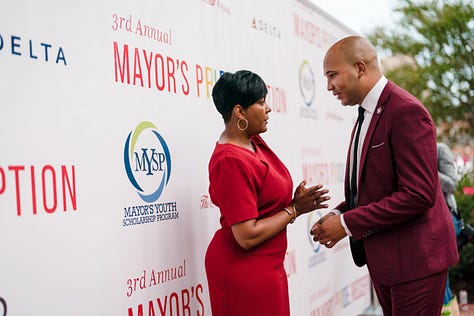
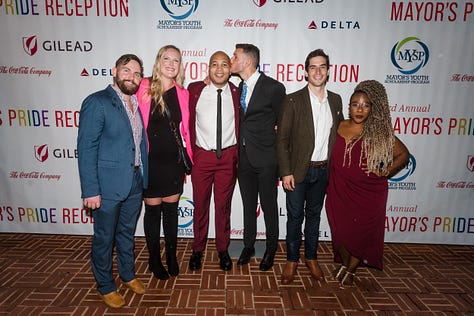
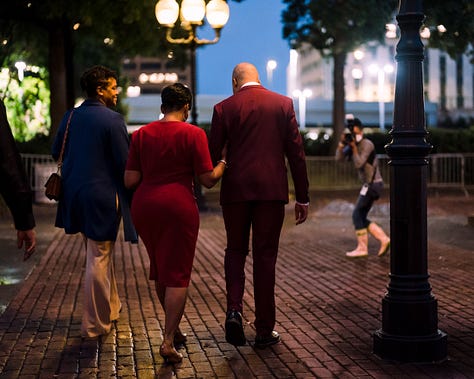
What we built wasn’t ending. It was evolving. And those events proved it would live on—well beyond her tenure.
For me, it was deeply personal.
We weren’t just throwing a party.
We were honoring a journey.
My parents were in the audience. And when Mayor Bottoms gave them a shout-out, they lit up—walking around like celebrities for the rest of the night. I was also joined by my best friends in the world—some flying in from across the country just to be there for that last reception. That meant everything to me.
The truth is—I didn’t know what was next.
I didn’t know if the incoming mayor would want to keep me. And honestly, depending on who won, I wasn’t sure if I wanted to stay.
Earlier that year, Ryan Gravel—the visionary behind the Atlanta BeltLine—gave a commencement speech at Georgia Tech that I happened to catch. His words were meant for the graduates, but somehow, they carried me too:
“You don’t know what’s coming next, but you’re ready.”
The last chapter of What I Did With It drops next week. Thanks for sticking with me.





